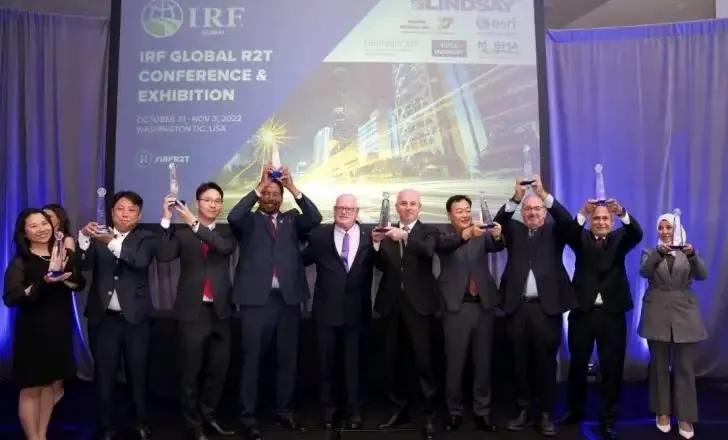The next generation of roads - the ‘fifth generation’ - will provide the world’s highway authorities with a big leap forward, delegates to the recent European Road Conference heard.
Adewole Adesiyun, deputy secretary general at the Brussels-based Forum of European National Highway Research Laboratories (FEHRL), said a paradigm shift is taking place, offering “solutions to existing and future problems with new ways to use smart, intelligent and dynamic technologies”.
The first four generations of roads, he told the 500-plus delegates at the conference in Dubrovnik, organised by IRF Global and the European Union Road Federation, were: “the track, the paved road, the smooth road and the motorway”.
He added: “The fifth generation road will offer long-term pan-European solution,” with new approaches to “the maintenance of existing highways and the building of new roads” … plus news ways to manage “lower whole-life costs”.
Highways agencies around the world need to start thinking as broadly as possible today about how they are going to invest for tomorrow, agreed speaker after speaker at the recent event.
If we don’t get to grips with the generation 5 road, disaster looms. “Despite new and disruptive technologies, transport infrastructure and logistics operations remain critical for developed nations,” Adesiyun told the conference.
“Daily congestion causes an economic loss equivalent to around 1% of Europe’s GDP … circa €200 billion annually. And things like extreme weather events are estimated to cost the European Union’s transport system at least €15 billion each year. Other infrastructure and interdependency is critical.”
This forever-open, self-healing road will “integrate innovation in infrastructure, vehicle technology and intelligent transport systems”, Adesiyun said. And there will probably be three iterations: “The adaptable road, the automated road; and the resilient road.”
ITS will help ‘fifth generation’ roads offer pan-European solution
The next generation of roads - the ‘fifth generation’ - will provide the world’s highway authorities with a big leap forward, delegates to the recent European Road Conference heard.
Adewole Adesiyun, deputy secretary general at the Brussels-based Forum of European National Highway Research Laboratories (FEHRL), said a paradigm shift is taking place, offering “solutions to existing and future problems with new ways to use smart, intelligent and dynamic technologies”.
The first four generations of roa
December 21, 2018
Read time: 2 mins
Related Content











